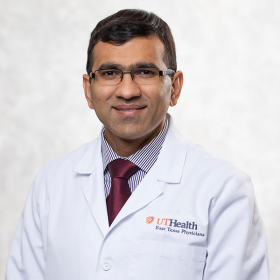
What is insomnia?
Insomnia can be divided into three types:
- Sleep-onset insomnia - Difficulty falling asleep
- Sleep-maintenance insomnia - Difficulty staying asleep
- Early awakening - Waking up at an early hour, unable to go back to sleep
Evaluation by a physician board-certified in sleep medicine is recommended to determine the root cause of insomnia. Sleep-onset insomnia may be related to anxiety or to restless legs syndrome (RLS). Sleep-maintenance insomnia is often related to obstructive sleep apnea (OSA), nocturia and periodic limb movement disorder (PLMD), while early awakening may be related to depression.
In general, people who experience symptoms of insomnia feel unable to get adequate sleep at night. They may have trouble falling asleep, wake up frequently during the night or wake early in the morning unable to return to sleep. Insomnia is considered a problem when it affects daytime activities. Insomnia has many possible causes, including stress, anxiety, depression, poor sleep habits, circadian rhythm disorders and taking certain medications.
How is insomnia treated?
In cases where there is no obvious cause for sleeplessness, a sleep study is warranted to rule out any of the aforementioned causes. A sleep study entails spending the night in a sleep lab where brain activity, respiratory movements and oxygen saturation are monitored.
If no identifiable cause of insomnia is found following a sleep study, sleep hygiene practices should be reviewed and addressed. Good sleep hygiene involves developing healthy sleep habits such as going to bed at the same time every night and waking up at the same time every morning. Also, limiting time spent in bed without sleeping, avoiding alcohol and smoking before going to bed, avoiding watching TV or looking at a cell phone or laptop within two to three hours of bedtime. As well as avoiding caffeinated beverages after 3 p.m.
Some medications should be avoided in the evening, such as diuretics, corticosteroids and theophylline, and should be given in the morning. If you’re experiencing insomnia, talk with your doctor about your medications. Increasing physical activity during the day and avoiding naps is extremely important. Prior to going to bed, the room should be dimmed and the temperature should be kept as cold as can be tolerated.
Pharmacologic treatment is the last resort in the treatment of insomnia. Over-the-counter melatonin is a relatively safe first-line therapy, but you should consult your physician before taking any sedatives for sleep.
If you are suffering from a sleep disorder, ask to be referred to UT Health East Texas by your physician or call 903-531-8079 to begin the referral process.




